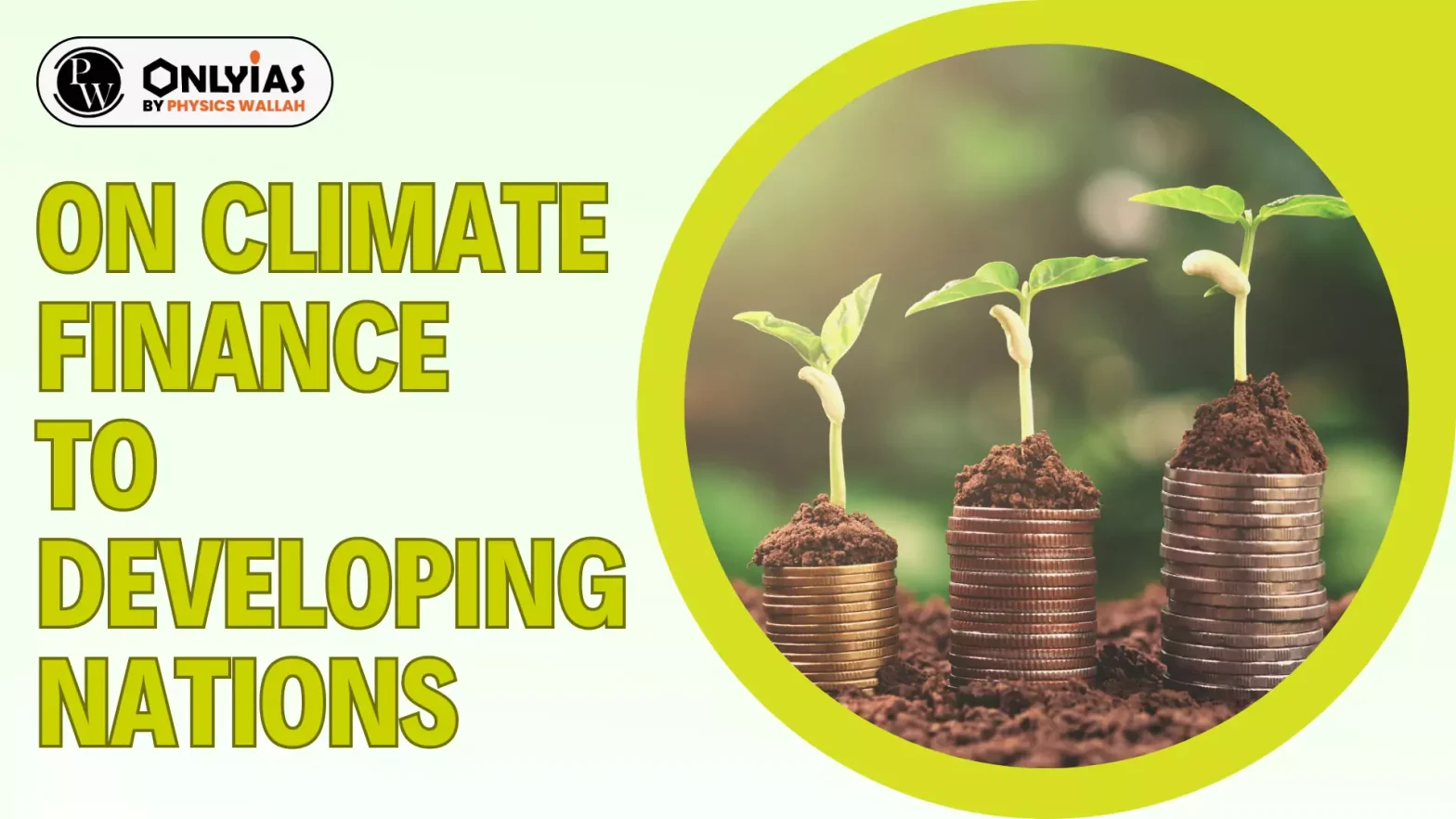The 29th Conference of the Parties (COP29) of the UNFCCC, to be held in Baku, Azerbaijan, from November 11 to 22, is expected to be a “finance COP,” with key climate finance issues at the top of its agenda.
Climate Finance
The United Nations Framework Convention on Climate Change (UNFCCC) defines climate finance as “local, national, or transnational financing—drawn from public, private, and alternative sources—that seeks to support mitigation and adaptation actions addressing climate change.”
Approaches to Fight Climate Change
- Adaptation:
- This refers to the process of adjusting to current or expected climate change and its effects.
- Adaptation strategies aim to minimise the negative impacts of climate change on people, ecosystems, and economies.
- For example, developing crops that are resilient to changing climatic conditions.
- Mitigation:
- This involves efforts to reduce or prevent the emission of greenhouse gases (GHGs) to limit the extent of climate change.
- Mitigation strategies focus on lowering the carbon footprint and enhancing carbon sinks.
- For example, implementing measures to stop greenhouse gas emissions altogether.
Enroll now for UPSC Online Course
Why Developing Countries Need More Climate Finance
- Climate Vulnerability: Due to geographical factors and their reliance on sensitive sectors like agriculture.
- Limited Resources: These nations have fewer financial and specialised human resources compared to developed countries, limiting their capacity to adapt to climate change and recover from its impacts, which affects their economies.
- Historical Injustice: The Sixth Assessment Report by the Intergovernmental Panel on Climate Change indicates that developed countries account for 57% of cumulative emissions since 1850, despite having smaller populations than developing nations.
- Competing Developmental Needs: Developing countries face multiple developmental challenges that hinder their ability to take independent climate action.
Issues with Climate Finance
- Composition of Climate Finance: International public climate finance includes commercial and concessional loans, grants, equity, and other instruments.
- In 2022, loans made up the largest share (69.4%), followed by grants (28%).
- Shortcomings in Reporting: Developing countries and organisations like Oxfam criticise the OECD’s climate finance reporting.
- Actual Disbursements: They argue that reports should reflect actual disbursements rather than mere commitments.
- Reclassification of Aid: Instances exist where previously given assistance is reclassified as climate finance.
- Emphasis on Grants: Only grants or grant-equivalent concessional finance should be included in climate finance calculations and not commercial grants.
- Failure to Meet Commitments: Under the 2009 Copenhagen Accord, developed countries committed to providing $100 billion annually in climate finance to developing nations by 2020, extended to 2025.
- Achieving this target requires developed countries to assist in facilitating access to loans for developing nations, as these countries typically face higher interest rates.
How Much Does India Need?
India has both short-term and long-term climate targets:
- Short-term Goals (By 2030):
- Install 500 GW of generating capacity from non-fossil fuel sources.
- Achieve a production capacity of 5 million metric tonnes per annum of green hydrogen (GH2).
- Develop differentiated levels of penetration for various Electric Vehicle (EV) categories.
- For achieving 450 GW of renewable energy by 2030, an additional investment of ₹16.8 lakh crore would be required.
- Long-term Goals (2020-2070):
- To achieve net-zero emissions, India will probably need approximately ₹850 lakh crore in investments.
What Should the NCQG Quantum Be?
In the upcoming meet, an important agenda item is to determine a new annual climate finance mobilisation target, known as the New Collective Quantified Goal (NCQG). This target will dictate the amount of climate finance allocated to developing countries.
Check Out UPSC Modules From PW Store
Suggested Criteria for NCQG
- Actual Disbursals: The NCQG should include financial flows that reflect actual disbursements, not just commitments.
- New and Additional Funding: It should ensure that the funding is new and adds to existing financial resources.
- Public Capital: The NCQG should prioritise public capital in the form of direct grants.
- Mobilised Private Capital: It should account for private capital that is mobilised through public funding, but exclude organically flowing private finance to developing countries.
An independent high-level expert group, constituted by the presidencies of COP26 and COP27, has estimated that developing countries (excluding China) will need around $1 trillion in external finance by 2030
Conclusion
Climate finance is not just about monetary contributions; it also embodies global equity and addresses historical injustices. Developed countries must commit to supporting developing nations in this crucial endeavour.
![]() 21 Oct 2024
21 Oct 2024

